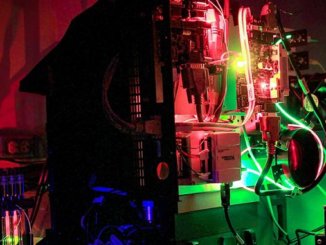Is there a role for Eterna in research?
Moving away from the game players specifically, we were obviously intrigued by the Eterna initiative itself and what the future could hold for it. While it is clearly already playing a role in research, as it furthers our knowledge of how RNA folds, we wanted to know whether the players thought that crowd-sourcing might be the road down which science will travel in the coming years. Interestingly, despite the obvious respect and praise that they have for the initiative, the players interviewed were refreshingly pragmatic about its place in the wider world of scientific endeavour:
“I think crowd-sourced experiments, like Eterna, will be a good supplement to what science is already being carried out.” (Eli Fisker)
“…there is a class of problems in science, requiring to deal with extremely large amounts of data and/or with extremely complex algorithms (those called ‘NP-hard’ by computer scientists), and I do believe that a crowd can prove very useful and powerful in those cases.” (Nando)
“Crowd-sourcing has its place in scientific research, but will not, nor should not, replace the individual, the ‘drop a flask, pick it up, make discovery’ type of research going on in labs around the world.” (Anonymous)
Does Eterna have the potential to become an educational tool?
So with an important but perhaps limited role for crowd-sourcing envisaged for research, what did the interviewees think of the use of Eterna in an educational capacity? There is some indication that school groups had been on ‘trips’ into the game, so it appears that this might already be happening.
“We have had teachers bring their classes into the game. I think it is a good way to learn, not just about RNA, but also about doing science.” (Eli Fisker)
“I’m pretty sure it is a fun way to present RNA to high-schoolers. And there’s already been a few ‘visiting classes’ in the past.” (Nando)
In general though, up to this point there did not seem to have been much consideration that the game could be used in a formal education capacity such as we had envisaged, though some players did see how there was potential in this.
“I think that as soon as your homework assignment is to perform experiments with RNA by playing a video game online, students are not only going to be enthusiastic to learn about science, they will also learn more and perhaps get better grades. Some of these students may even be inspired to become scientists.” (Kevin Cabral)
What struck us, however, and what we had not envisaged, was just how much the game had taught its players, and how much their interest in the underlying concepts had been piqued.
“Is it a useful teaching tool? Well, ten months ago, I didn’t know the first thing about nucleic acids (other than they existed), and if one takes a look at the materials I uploaded on the wiki, I think it could be said that I’ve been taught quite a few things. Yet, all of it was my own seeking for more information… Since I started playing and learning about RNA, there hasn’t been a day where I haven’t learned something new about the RNA world.” (Nando)


